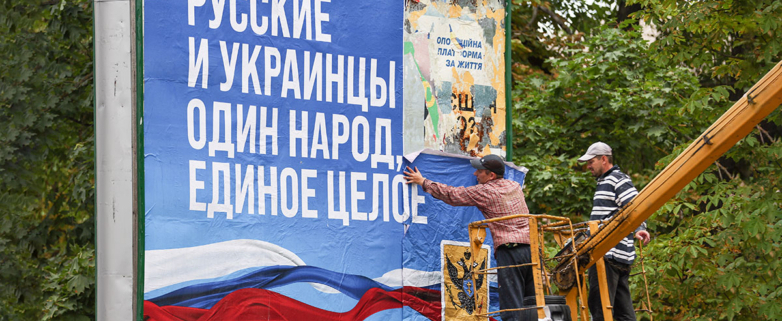A Chief Negotiator’s View: Dmitri Trenin on Ukraine’s Post-Conflict Path and Russia’s Strategy
Dmitri Vitalyevich Trenin, a distinguished Russian political analyst and former military officer, has significantly influenced Russian foreign policy discourse. Serving in the Soviet and Russian armed forces from 1972 to 1993, he held various positions, including liaison officer in Germany and participation in U.S.-Soviet nuclear arms negotiations in Geneva. Notably, he was the first non-NATO senior research fellow at the NATO Defense College in Rome in 1993.
After retiring from the military as a colonel, Trenin transitioned to academia and policy analysis. He joined the Carnegie Moscow Center at its inception in 1994 and became its first Russian director in 2008, leading the center until its closure in 2022. Under his leadership, the center was recognized as a leading think tank in Russia, contributing extensively to discussions on international relations and security.
Trenin’s scholarly work includes numerous publications on Russian foreign policy and international affairs, such as “Russia” (2019), “What Is Russia Up to in the Middle East?” (2017), and “Should We Fear Russia?” (2016). His analyses are valued for their depth and insight into Russia’s geopolitical strategies.
In recent years, Trenin’s stance has aligned more closely with official Russian positions, particularly regarding the conflict in Ukraine. His support for Russia’s actions in Ukraine led to his expulsion from the Royal Swedish Academy of War Sciences in October 2022.
While specific details about Trenin’s personal relationship with President Vladimir Putin are not publicly documented, his alignment with Kremlin policies and his prominence in Russian policy circles suggest quite a degree of influence and proximity to the current administration. His perspectives continue to shape discussions on Russia’s role in global affairs, reflecting a deep understanding of the nation’s strategic objectives.
The article “Какой должна стать Украина после завершения российской спецоперации” (“What Ukraine Should Become After the Completion of the Russian Special Operation”) discusses potential scenarios for Ukraine’s future post-conflict. It especially emphasizes the importance of Russia’s role in shaping a new Ukraine that is peaceful, cooperative and aligned with the Russian world. The author argues against the complete annexation of Ukraine by Russia, citing challenges in controlling and integrating the entire territory. Instead, a more feasible approach involves the liberation of Ukraine from anti-Russian elements, leading to the establishment of a new sovereign Ukrainian state closely cooperating with Russia. This new Ukraine would focus on its cultural and historical ties with Russia, fostering a society based on Eastern Slavic heritage and Orthodox Christianity. The article also suggests that certain western regions with strong nationalist sentiments could remain outside Russian influence, potentially aligning with Western countries. Overall, the piece advocates for a strategic and selective approach to Ukraine’s future, aiming for stability and partnership between the two nations.
In terms of negotiation baselines, the article presents several key points:
- Selective Integration: Advocates for integrating only those Ukrainian regions that can be effectively controlled and are culturally aligned with Russia, avoiding overextension.
- Neutralization of Hostile Elements: Emphasizes the need to eliminate anti-Russian regimes and ideologies in Ukraine to ensure long-term stability.
- Cultural and Historical Alignment: Proposes building the new Ukrainian state on shared Eastern Slavic heritage and Orthodox Christian values to strengthen ties with Russia.
- Strategic Concessions: Suggests allowing western regions with strong nationalist sentiments to align with Western countries, reducing internal conflict and focusing on more cooperative areas.
- Sovereign Partnership: Envisions a sovereign Ukraine that, while independent, maintains a close partnership with Russia, benefiting from economic ties and shared security interests.
- Avoidance of Total Annexation: Warns against the complete annexation of Ukraine due to potential difficulties in governance and integration, advocating for a more nuanced approach.
- Focus on Stability and Peace: Prioritizes the establishment of a peaceful and stable neighbor over territorial expansion, aiming for long-term regional security.
These realistic baselines can inform quality negotiation preparation and strategies by highlighting the importance of cultural alignment, strategic concessions and the benefits of -a sovereign yet closely allied neighboring state.
Here’s the link: https://profile.ru/abroad/kakoj-dolzhna-stat-ukraina-posle-zaversheniya-rossijskoj-specoperacii-1635806/ Addition resources worth reading: https://www.newyorker.com/news/the-lede/what-russia-and-ukraine-want-from-a-second-trump-presidency

 ©Sergey Bobylev/TASS
©Sergey Bobylev/TASS
Leave a Reply
Want to join the discussion?Feel free to contribute!